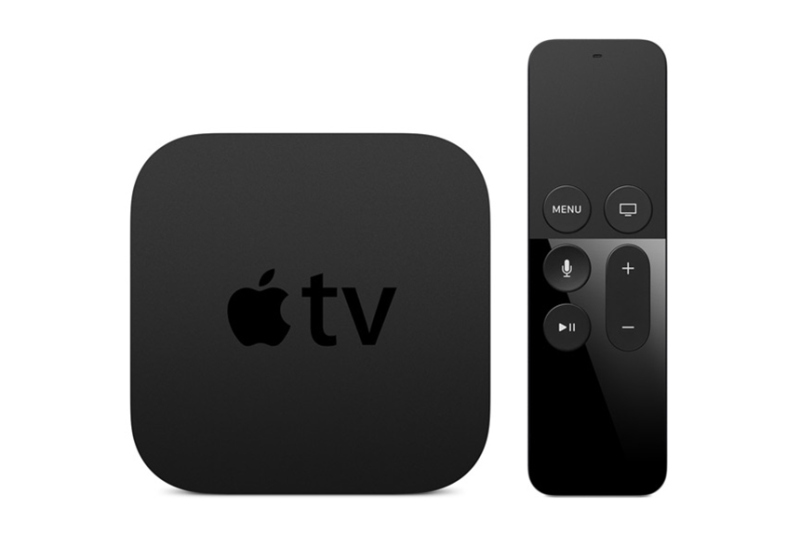 Apple is a frustrating gaming company to follow because they do so many baffling things that make no sense or make the platform a bit worse for power users. The reality is that they can do whatever and it won’t matter, because they’ve got so much momentum they’ll still rake in profit hand over fist regardless. But, the potential future growth in the platform is coming from the eventual demise of dedicated gaming hardware as the main way to play games. Sadly the follies on the App Store with games becoming incompatible and disappearing from users’ purchased libraries are showing that Apple isn’t super friendly to gamers. What if mobile gaming enthusiasts actively avoid Apple, and spend the billions they would have spent on consoles and gaming PCs on, well, anyone but Apple?
Apple is a frustrating gaming company to follow because they do so many baffling things that make no sense or make the platform a bit worse for power users. The reality is that they can do whatever and it won’t matter, because they’ve got so much momentum they’ll still rake in profit hand over fist regardless. But, the potential future growth in the platform is coming from the eventual demise of dedicated gaming hardware as the main way to play games. Sadly the follies on the App Store with games becoming incompatible and disappearing from users’ purchased libraries are showing that Apple isn’t super friendly to gamers. What if mobile gaming enthusiasts actively avoid Apple, and spend the billions they would have spent on consoles and gaming PCs on, well, anyone but Apple?
I think that the growth of mobile as a gaming platform is inevitable despite what Apple does. The need for dedicated gaming hardware is shrinking. Big budget studios are and will be moving to mobile as that’s where the mass market is going.
When gamers start to see that the games their friends are playing are increasingly on mobile devices, as mobile MOBAs like Vainglory (Free) and Call of Champions (Free) get increased eSports presences, more Hearthstone (Free) sensations exist on mobile side-by-side with the desktop versions, and maybe even if someone finally figures out how to make the FPS genre work on mobile. Maybe that’s a stretch, but who knows – maybe a controller or KBM-focused game will take off. We’re seeing games like Destiny use models that would be friendly for the free-to-play model that is already well-established on mobile. tvOS and Android TV will invade TVs and bring games to them, running on mobile OSes. Plus, with Windows 10 being an OS that can transition between form factors seamlessly, it might not be so much “we’re all playing games on phones" as much as it is that the distinctions between mobile, console, and desktop just all dies.
Enthusiasts aren’t necessarily going to flock to iOS for mobile games. Right now, iOS is the leading platform for mobile gaming, as all the big releases come to it, especially on the indie side. But as the stragglers to the smartphone era start buying their new phones on a biennial basis, the growth from here on out will come from enthusiasts buying mobile devices. What guarantee is there that enthusiasts will buy iOS devices instead of Android or Windows ones? None. In fact, there may be incentive to go to those platforms instead, if they’re friendlier to the interests of gaming. And I think ultimately, the gamers might be dragged kicking and screaming to mobile, but they’ll go where the games are, and to the platforms that welcome them the most.
The problem is that iOS was a major gaming platform mostly by accident, and so far, it’s been non-traditional gamers that have driven its growth. And long-term, maybe people who are used to the platform won’t really care about its shortcomings as a gaming platform. It would be one thing if Apple was just mediocre as a gaming company. But they’re getting worse. We’ve seen Apple do things like take away access to save games through third-party tools, make it harder to back up games if they get pulled, and then create situations where games that get pulled are forever inaccessible. You can’t downgrade your OS if a game stops working or your device gets worse, thanks to Apple wanting to thwart jailbreakers. Game Center is just generally a bad time. I mean, overall I still kind of like the ease of use of iOS better than the current generation of consoles’ interfaces, but the second you pop the hood, iOS is sub-optimal for gaming.
The blame for the game-pulling situation is two-fold. One, publishers that abandon their games after a short amount of time deserve scorn. If a game is several years old and an iOS update breaks it, and maybe 10 people care? It sucks, but I understand. There’s a point where expecting continued support for a game seems unreasonable, you didn’t pay that much. But a year is far too short. But Apple has created an operating system where games break with stunning regularity, and users now fear that their games won’t work whenever they make any update. And Apple has seemingly not put enough pressure on publishers to not make their platform look worse by keeping their big-name games working, especially when they make paid games on mobile look like a risky proposition.
Even the fact that iOS updates constantly break things seems laughable. Like, I get that, say, a major Windows update might break things from a previous version. But there’s a difference between having things break every several years and worrying about games breaking on a yearly basis. And even then, we’ve seen point updates break games, like BioShock breaking on iOS 8.3. People may laugh about Android not getting updates, and iOS users updating quickly and often. But hey – at least I know if a game works on a certain Android version, I don’t feel forced to upgrade. In fact, people criticizing the Android update ecosystem ignore that Google has decoupled many features from Android OS updates.
And you want to know the reason why Apple needs to become a better gaming company? Because Google and Android represent a major persistent threat in the enthusiast market.
I think Android, because at least it has an establishment on mobile, whereas Microsoft has no real foothold on the mobile platform yet. You can complain about all the drawbacks of Android as a platform, but I think there are things that Google could do to improve the Android experience. Namely, this is through the sword of Damocles that they wield, namely Google Play Services.
Android is open source, but they could force manufacturers to do a lot of things by way of refusing access to Google Play Services and the Google Play store if they don’t kiss up to Google. Sure, the manufacturers could roll their own replacement solutions, but people won’t like it, and the only manufacturer that could possibly build their own ecosystem that people would live with would be Samsung. Maybe.
So let’s say Google cleans up the Android ecosystem by forcing manufacturers to make devices to a certain technical standard to ensure app and game compatibility. And suddenly developers, seeing a market that takes much less effort to support, increasingly develop for it, and weaken the position of Apple as the cultural leader in mobile gaming. Or perhaps Google makes a bigger effort to ensure that they get exclusives – I’ve recommended before that Apple start to make a bigger effort at being a game publisher by doing things like funding games, and having a gaming presence at events like E3 to show off mobile gaming. Here’s the thing – Google could do exactly the same thing, and could reap the benefits of being the platform that takes mobile gaming seriously.
I mean, do you really expect Apple to be the great gaming company of the future?
These are a lot of ifs. And I don’t really trust Google to do the right thing to power Android to the point that it will surpass iOS as a gaming platform. I mean, they still haven’t figured out how to have apps have promo codes. Ever wonder why the gaming media is so iOS-focused? Part of that is because developers can give out promo codes for iOS games, and Android developers cannot. They can send out copies of the game directly, but developers have historically been skittish to do that because they don’t want their game floating around out there, though there are plenty of trustworthy people in the media, and their game is gonna get pirated anyway. But even just a little thing like that? My faith in Google is limited. And there’s the weird disconnect with how Google makes their own devices, but are a minor player in the hardware ecosystem that they provide the software and app store for. Who exactly is responsible for promoting the health of Android as a gaming platform there? Google’s efforts could go toward making Samsung, and HTC lots of money. Whereas Apple has an interest in promoting the health of the App Store because all money flows through them.
But here’s the thing: there’s such an open opportunity there for Google and anyone involved in Android to become a serious mobile gaming player in the coming years. Android as it currently stands is a better platform for gaming enthusiasts. I mean, there’s a wider selection of controllers, easier backup of apps and save games, DRM-free options, your choice of hardware, and more. I can even see the potential for a hardware customization and building market with Android consoles like you see with PC building. Again, Google would have to get their act together in a way that I’d probably bet against. But you look at what Apple is doing in seemingly waging war against making their platform friendly to gaming enthusiasts, and you have to ask if Apple isn’t throwing away a major opportunity unless they get their act together.

